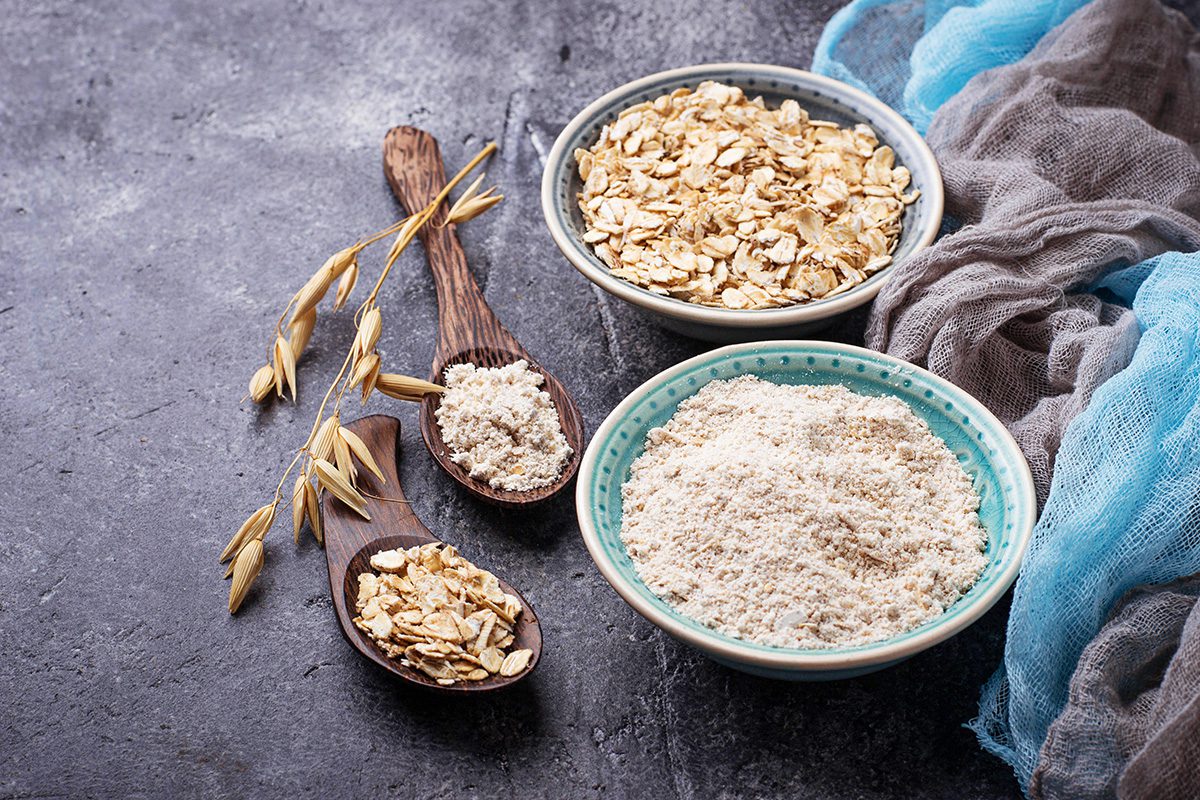Is Oat Flour Gluten-Free?
Yes, in its purest form, oat flour is gluten-free. Oats, by nature, do not contain gluten. However, the challenge arises during the processing phase. Many oats are processed in facilities that handle gluten-containing grains, leading to potential cross-contamination. So, while oats are inherently gluten-free, not all oat flours on the market can guarantee the absence of gluten.
How to make sure your oat flour is genuinely gluten-free
Here are some additional steps you can take to ensure your oat flour is genuinely free from gluten:
- Check the label: Brands that prioritize gluten-free products will often have a certification or label indicating their gluten-free (GF) status.
- Research the brand: Dive deep into the brand’s history and mission. Brands dedicated to the gluten-free community often share their journey, sourcing methods, and processing details transparently. Read about Duinkerken’s free-from promise here.
- Online reviews and forums: The gluten-free community is vocal and supportive. Check online forums, blogs, and review sites where users share their experiences with specific products. Personal testimonials can offer valuable insights.
Always prioritize your health and well-being, and when in doubt, opt for brands and products that have consistently proven their commitment to the gluten-free community.
Fun ways to use oat flour
Oat flour has a naturally sweet and nutty flavour. Even if you’re not gluten-intolerant, incorporating oat flour into your culinary repertoire can introduce a new dimension of taste and texture to your dishes.
Here are some fun and creative ways to use oat flour:
- Oat flour pancakes
- Smoothie thickener
- Homemade oat flour tortillas
- Oat flour cookies
- Breading and coating
- Oat flour muffins
- Thickening Agent
- Oat flour pizza base
- Energy bites
- Oat flour brownies
When oat flour may not be the best choice
For those with severe gluten sensitivities or celiac disease, even the slightest trace of gluten can trigger reactions. While oat flour is a fantastic ingredient with numerous applications, there might also be times when you’re looking for a change or need an alternative due to dietary restrictions.
While oat flour has its merits, there are several other flours that can be used as alternatives, especially if you’re looking for a 100% gluten-free option.
These are some of the best substitutes that can seamlessly replace oat flour in your favourite recipes.
The best alternatives to oat flour
- Rice flour: A staple in many gluten-free baking mixes, rice flour offers a light texture and neutral flavour, making it perfect for cakes, cookies, and more.
- Tapioca flour: Derived from the cassava root, tapioca flour gives baked goods a chewy texture and glossy finish. It’s often used in combination with other flours to achieve the desired consistency.
- Sorghum flour: Known for its slightly sweet flavour, sorghum flour is a nutritious alternative to oat flour. It’s rich in fibre and antioxidants.
- Millet flour: With its mild flavour, millet flour can be a great substitute for oat flour in various recipes. It’s also rich in vitamins and minerals.
- Buckwheat flour: Despite its name, buckwheat isn’t related to wheat. It’s a gluten-free grain that lends a rich, earthy flavour to baked goods.
Looking for easy recipes using oat flour substitutes? Check out our recipe section! We post simple, tasty, and allergen-free recipes every week for the whole family.
At Duinkerken, we understand the importance of trust in the gluten-free community. Our facilities are special ‘free-from’ zones, ensuring that our products are genuinely gluten-free. Our gluten-free baking mixes are crafted with care, ensuring that each ingredient is of the highest quality.
Hungry for more? Dive deep into the world of gluten-free baking with us. Explore our products and let’s make every meal a celebration!





